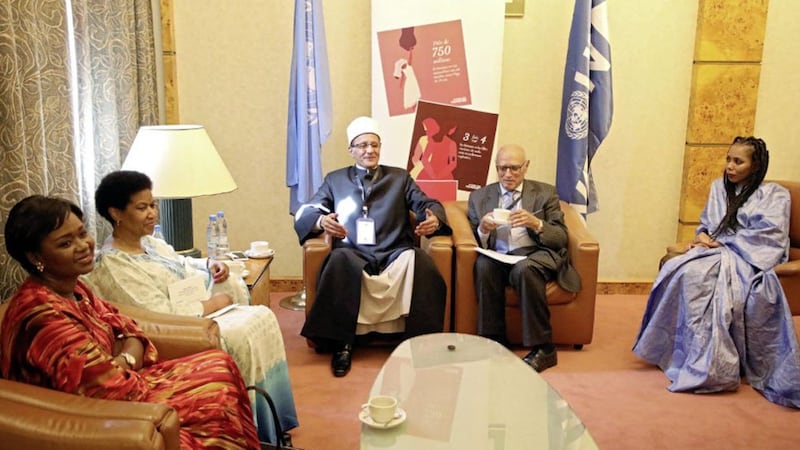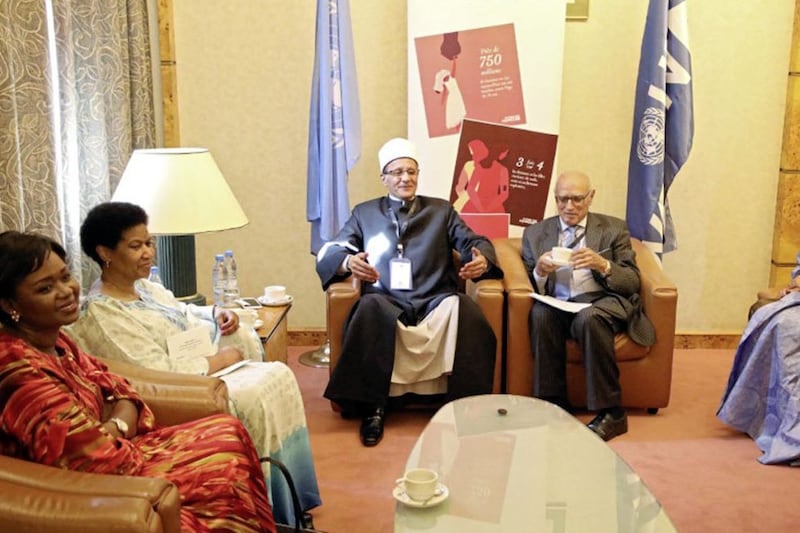THE `hidden' problem of child marriages in Northern Ireland is to be examined by police, prosecutors, private practice solicitors and child welfare workers at a special meeting.
Brian Speers, president of the Commonwealth Lawyers' Association, said the issue is one currently concerning all "legal entities" in the jurisdiction and is often accompanied by child trafficking.
The Belfast meeting, which will take place in September, comes as a centre of Islamic learning, considered by some Muslims to be the highest authority of religious jurisprudence, has issued a fatwa against child marriage.
Nigeria-born Mr Speers, who recently took up the two-year-post in the association representing all 54 member states, is bringing forward its key report The Role of the Law in Eliminating Child Marriage in the Commonwealth.
It tracks the prevalence of child marriage within the group of nations, revealing that "the vast majority... have no constitutional provisions requiring a minimum marriageable age of 18 or over (and) 86 per cent of Commonwealth constitutions do not specify a minimum marriageable age at all".
And, despite all member states ratifying international treaties requiring legal protection against child marriage, only nine - Botswana, Fiji, Ghana, India, Kenya, Nigeria, Rwanda, Sierra Leone and Trinidad & Tobago - have legislated an absolute minimum age of 18 or over.
In South Asia one in two girls face child marriages and four in 10 in sub-Saharan Africa.
The UK the legal minimum age is 16, although under-18s require consent of parents and guardians.
The Commonwealth accounts for 58.5 per cent of all child marriages, despite having just 32 per cent of the global population, with 17 girls married as children every minute.
Research shows child marriage leads to lower levels of education, health, economic status, social potential, domestic abuse, illiteracy and poverty with the `wives' suffering higher maternal and infant mortality.
The deputy grand imam of al-Azhar wrote the fatwa last month saying marriage should be based on the consent of both parties and "particularly the young woman" at the first African summit on child marriage and female genital mutilation, which took place in Senegal this week.
"In Northern Ireland we have a growing group of ethnic minorities," Mr Speers said.
"There will be a meeting in September at which there will be a discussion on what is the nature of this problem in our jurisdiction. It's not just marriage, it's bringing young girls here to get married and that leads us to child trafficking issues."
He said the nature of the problem means that child brides will not seek help themselves, despite there being ample legal protections for them.
"Lawyers have to find them, or charitable bodies or human rights groups will have to do that.
"There is only a handful of cases that we see (in the UK) but where they go the law is very clear. There are challenges to governments and departments.
Mr Speers said child marriage will be a central strand of his tenure, along with sharing expertise between countries on mediation, legal training, freedom of expression and upholding rule of law concepts.



